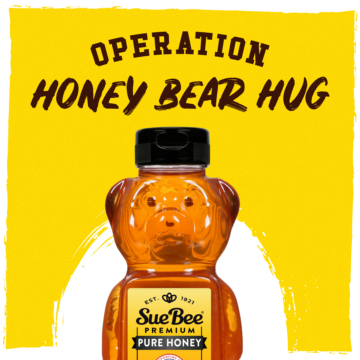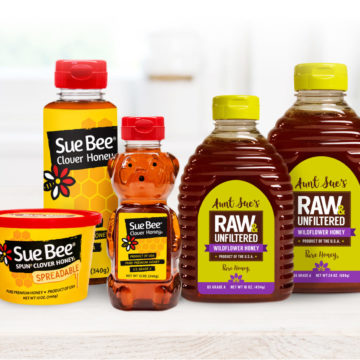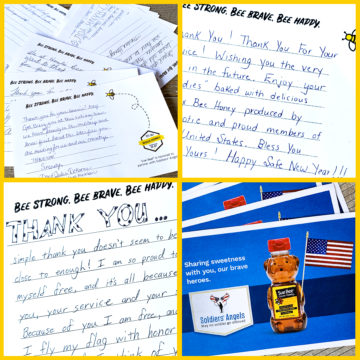Support the Honey Bee on Earth Day
In 1970, an environmental movement was born to bring about a consciousness concerning air and water pollution. This movement – dubbed as Earth Day – has since evolved to encompass more than just air and water damage, but all things concerning the natural world around us. There are several different activities and causes that support the ideals of Earth Day. One way to show support is by helping to protect the U.S.A. honey bee. Though small in size, the honey bee plays a large role in our ecosystem.

Many people are not aware of the danger that honey bees are in.
- The current bee crisis began in 2006 when beekeepers across the country reported massive losses — up to 90 percent in some cases. Beekeepers lost not only hives but colonies of bees.
- In 2014 beekeepers lost more than 40 percent of their hives due to pollution or habitat damage.
- Without bees, the United States could lose an estimated $15 billion worth of crops.
Honey bees are important for several reasons. Some of the most obvious are the following:
- Bees are responsible for pollinating one-sixth of the flowering plant species worldwide and about 400 different types of agricultural plants. Why is pollination so important? Pollination enables the growth and reproduction of plants.
- Bees provide sources of food. If bees were not around we would not have certain agricultural products such as broccoli, almonds, apples or pumpkins, not to mention honey!
- Bees play a role in making the environment a beautiful place by helping the flowers and plants to flourish and spread.
How can you help protect the U.S.A. honey bee?
- Steer clear of pesticides and chemicals. If you are able, pull weeds by hand. Not only is avoiding pesticides good for the environment, it is also good for your family and pets.
- Work with organizations such as Pesticide Action Network (PAN) to help legally protect bees from pesticides.
- Grow pollinator-friendly plants. The Pollinator Partnership has a website that will tell you about the pollinator-friendly plants that grow in your region.
- When buying honey, read the labels and look for honey produced in America.
Share your efforts to help support the U.S.A. honey bee with us on Facebook, Twitter and Instagram!



